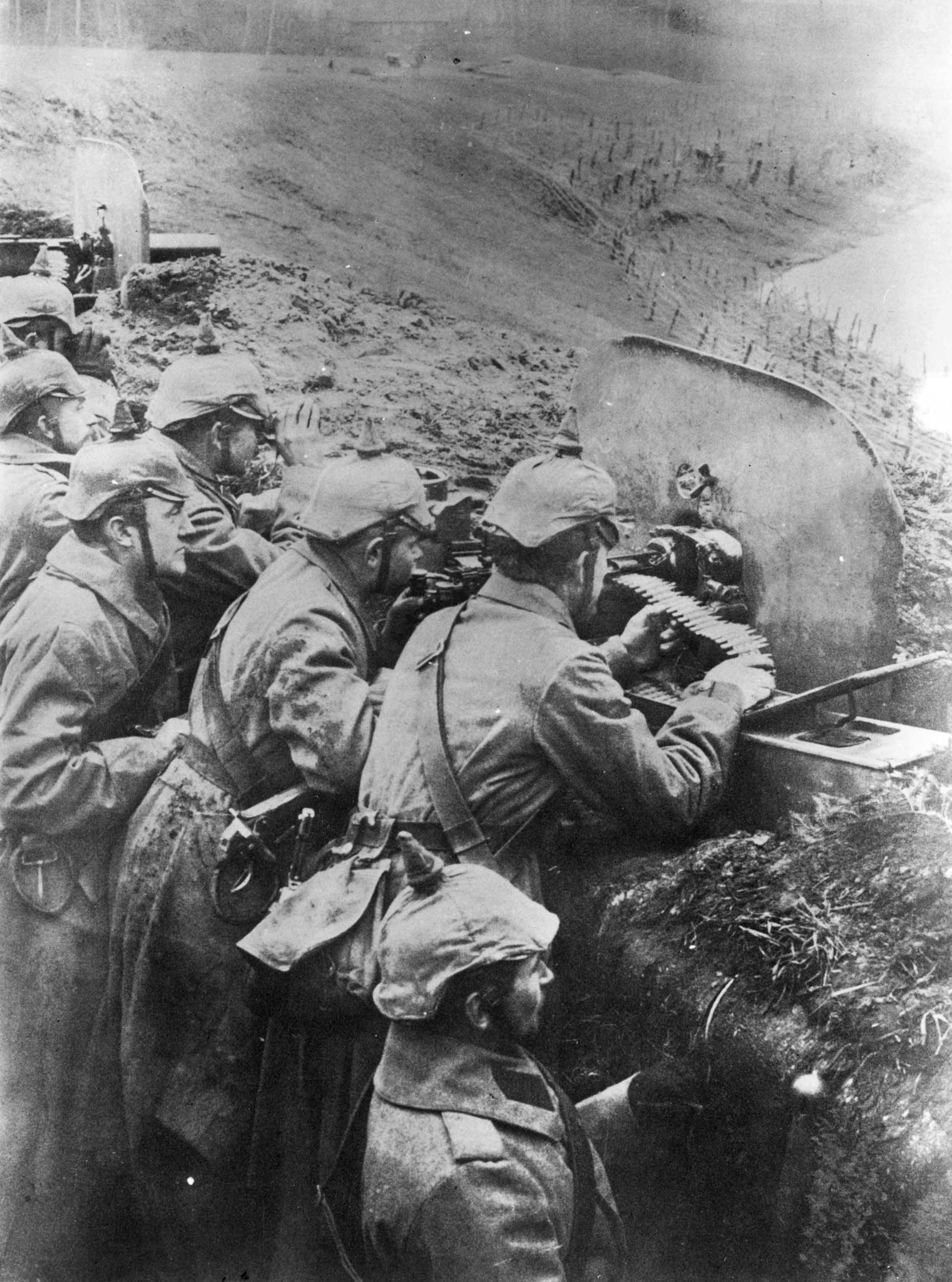Outside Verdun by Arnold Zweig; Translated by Fiona Rintoul, book review
A fine, forgotten masterpiece gives us an insight into Germany's war

Your support helps us to tell the story
From reproductive rights to climate change to Big Tech, The Independent is on the ground when the story is developing. Whether it's investigating the financials of Elon Musk's pro-Trump PAC or producing our latest documentary, 'The A Word', which shines a light on the American women fighting for reproductive rights, we know how important it is to parse out the facts from the messaging.
At such a critical moment in US history, we need reporters on the ground. Your donation allows us to keep sending journalists to speak to both sides of the story.
The Independent is trusted by Americans across the entire political spectrum. And unlike many other quality news outlets, we choose not to lock Americans out of our reporting and analysis with paywalls. We believe quality journalism should be available to everyone, paid for by those who can afford it.
Your support makes all the difference.In this year of remembrance of the "Great War", with bookshops and radio and television programming providing plentiful material on many aspects, less represented are the experiences of the other side: what was it like to be a German soldier, how did those in the Kaiser's Imperial Army rationalise the years of warfare, how were questions of legality, morality and duty viewed within the various strata of Wilhelmine Prussian society?
What were the hopes of a German private or officer for the years beyond the war? What did they believe they were fighting for, where did religion and race sit within the complicated structure of this first European industrialised war, and could the seeds of the next be deciphered from the language differentiating warrior and worker, Pan-German nationalist – those supporters of the "Jüdenzählung" (the Jewish Census of 1916, which helped spread the lie that Jewish men were not highly enough represented at the Front) – and those whose love for Germany was more inclusive?
Arnold Zweig's 1935 novel Outside Verdun, the middle book of his six-volume anti-war cycle which is now published in the UK for the first time, offers a powerful exploration of these questions. This invigorating new translation by Fiona Rintoul is timely and welcome.
Zweig was born to a Jewish family in Silesia (now Poland) and was experiencing success as a novelist when war was declared; he served in the German Army Services Corps (on account of his poor eyesight), a non-arms-bearing unit supplying the front line, building sections of rail-track, keeping communication-lines open. His experiences, detailed in this autobiographical novel, returned him a pacifist and Zionist. The night he witnessed his books being burned publicly in Berlin he went into exile first to France, then Palestine where he revised this novel, published in Amsterdam by that safe-house of exile literature, Querido. After the Second World War, disillusioned by aspects of Zionism and drawn rather to the creeds of socialism, he returned to Soviet Berlin, becoming a pillar of the writers' community of the GDR. He is chiefly remembered today for this and the earlier The Case of Sergeant Grischa, read widely in translation in 1930s Britain, also by politicians, and praised by JB Priestley as "the greatest novel on a war theme…from any country".
Outside Verdun excels as character-driven narrative that regards the war from a variety of perspectives, often at a remove from the trenches, in contrast to Erich Maria Remarque's All Quiet On the Western Front, although it is there that the final disillusionment of the main protagonist, the Jewish law student and writer, Private Bertin, occurs: "…no illusion could hold out here. The men in this boarded clay grave were just lost sheep, the abandoned overspill of world markets…Crouched on a plank under the earth 200 metres from the enemy…he saw that even here the men were just doing their duty – nothing more."
Themes of post-combat trauma, the poignancy of hope and the industry of destruction appear and reappear, from Bertin, with his foible for empathy, to the almost saint-like figure of Christoph Kroysing, who dares to criticise the hypocrisy and corruption around him in a letter which leads to an earlier death, and his soldier-warrior brother Eberhardt, with his personal quest for revenge, from Lieutenant Pahl, the voice of the Workers with great plans for his brand of Communism, to the level-headed nurse Klara, who dares believe in love, and her husband mentally destroyed by his war.
The liberating experience of lives crossing which otherwise never would, the lingering war-perspective of the survivor who sees possible military manoeuvres in every woodland glade, and the tenacious ability to perceive the beauty of nature à la Edmund Blunden – "the Meuse Hills descended from left and right to the winding river like a herd of horses stretching their heads to drink in water", or, "he noticed flowers... purple lady's smock, summer cornflowers, very blue, and a red poppy, like a swaying fleck of blood" – have their place in this mighty tapestry with its Tolstoy-esque moments of omniscient description of battle. This soberly portrayed view of that war resonates long after the reading.
Join our commenting forum
Join thought-provoking conversations, follow other Independent readers and see their replies
Comments